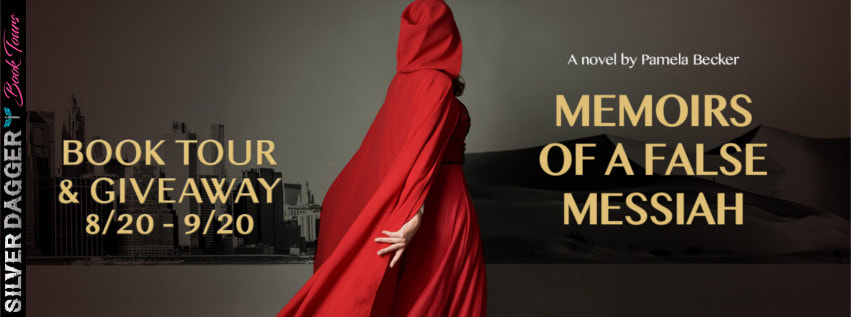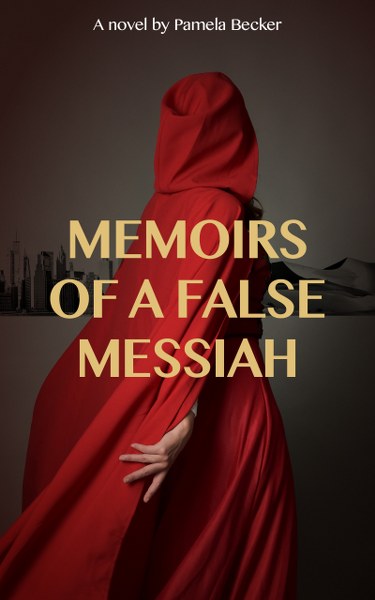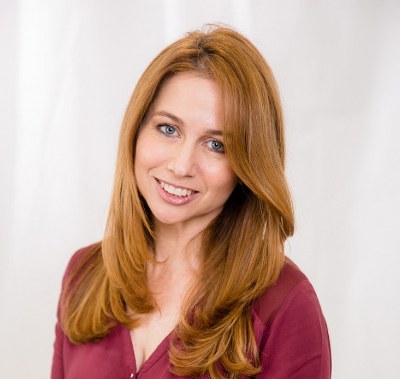What inspired you to write this book?
I first moved to a small desert town in Israel in 1994, as part of a writer-in-residence program. I was living in New York City at the time, struggling with working a day job, writing short fiction and getting them published in tiny magazines. The clean, dry desert air was invigorating.
I had several projects in the works at the time and became introduced to the Black Hebrew community in a nearby town. The founders were originally from the US, and they had created a community of like-minded people. This caught my imagination. What drives someone to create a community so completely different in belief and location from the one they came from?
Like my main character, I was educated in the New York City yeshiva world but was never comfortable with the “different but equal” role of women in Orthodox Judaism.
The more I learned about the Black Hebrews, one idea just led to another, and a Jewish woman, who may or may not be a false Messiah, was born…in my imagination and on the page until it all came together as my novel Memoirs of a False Messiah.
Where did you come up with the names in the story?
What is more narcissistic than writing a memoir? Or thinking that God has singled you out? The main character of Memoirs of a False Messiah is named MiMi – pronounced MeMe!
Mimi is often a nickname for Miriam, the name given to her beloved aunt. MiMi loves this aunt and could have easily grown up to be just like her if she hadn’t been compelled by a mission from God.
At first, I named all the side characters in the story after my sisters – I have four – just because they were far away, and I missed them. This way I was still “close” to them when I was writing. But then, just before I published, I changed them.
Tell us something really interesting that's happened to you!
One of the most incredible experiences in my life was accompanying my sister to Moscow to adopt her daughter, then four years old. We had to stay all together in a hotel for a week, as my sister completed all the necessary procedures and paperwork. I was still breast-feeding, so I brought my youngest who was only four months old along with me. My niece didn’t speak any English yet, we didn’t speak Russian, and my baby son helped break the ice.
I had brought wrapped toys for each day we were together. The first time I gave her a box wrapped in pretty paper, she didn’t know what to do with it. She had never seen a wrapped present before, which stunned me, though I guess I should not have been surprised.
Each day she grew a little more comfortable with my sister, who was a first-time mom and adopting on her own. It was like watching a miracle slowly unfold.
What are some of your pet peeves?
Things that disappear drive me crazy. Most often its keys, but it can be anything in my house that isn’t where I am SURE I left it. It’s not just me and my forgetfulness. My husband is a neat freak, but what he calls cleaning, I call Hiding Pam’s Things so She Can’t Find Them. I also have five generous teenagers who can take without asking the most random things – the can opener, measuring tape, HDMI cable from the Xbox – and give to friends who “need” them.
Where were you born/grew up at?
I grew up in a small town in Upstate New York and moved to New York City when I was thirteen to attend an Orthodox Jewish high school because there were no Jewish high schools where we lived. The school did not have dorms, so I stayed at my grandparents’ apartment in Stuyvesant Town and then at age 16 moved to the 92nd St YMHA. Most of the residents there were college or graduate students. There were only 2 high school kids boarding there at the time – a boy estranged from his guardians and me.
I first moved to a small desert town in Israel in 1994, as part of a writer-in-residence program. I was living in New York City at the time, struggling with working a day job, writing short fiction and getting them published in tiny magazines. The clean, dry desert air was invigorating.
I had several projects in the works at the time and became introduced to the Black Hebrew community in a nearby town. The founders were originally from the US, and they had created a community of like-minded people. This caught my imagination. What drives someone to create a community so completely different in belief and location from the one they came from?
Like my main character, I was educated in the New York City yeshiva world but was never comfortable with the “different but equal” role of women in Orthodox Judaism.
The more I learned about the Black Hebrews, one idea just led to another, and a Jewish woman, who may or may not be a false Messiah, was born…in my imagination and on the page until it all came together as my novel Memoirs of a False Messiah.
Where did you come up with the names in the story?
What is more narcissistic than writing a memoir? Or thinking that God has singled you out? The main character of Memoirs of a False Messiah is named MiMi – pronounced MeMe!
Mimi is often a nickname for Miriam, the name given to her beloved aunt. MiMi loves this aunt and could have easily grown up to be just like her if she hadn’t been compelled by a mission from God.
At first, I named all the side characters in the story after my sisters – I have four – just because they were far away, and I missed them. This way I was still “close” to them when I was writing. But then, just before I published, I changed them.
Tell us something really interesting that's happened to you!
One of the most incredible experiences in my life was accompanying my sister to Moscow to adopt her daughter, then four years old. We had to stay all together in a hotel for a week, as my sister completed all the necessary procedures and paperwork. I was still breast-feeding, so I brought my youngest who was only four months old along with me. My niece didn’t speak any English yet, we didn’t speak Russian, and my baby son helped break the ice.
I had brought wrapped toys for each day we were together. The first time I gave her a box wrapped in pretty paper, she didn’t know what to do with it. She had never seen a wrapped present before, which stunned me, though I guess I should not have been surprised.
Each day she grew a little more comfortable with my sister, who was a first-time mom and adopting on her own. It was like watching a miracle slowly unfold.
What are some of your pet peeves?
Things that disappear drive me crazy. Most often its keys, but it can be anything in my house that isn’t where I am SURE I left it. It’s not just me and my forgetfulness. My husband is a neat freak, but what he calls cleaning, I call Hiding Pam’s Things so She Can’t Find Them. I also have five generous teenagers who can take without asking the most random things – the can opener, measuring tape, HDMI cable from the Xbox – and give to friends who “need” them.
Where were you born/grew up at?
I grew up in a small town in Upstate New York and moved to New York City when I was thirteen to attend an Orthodox Jewish high school because there were no Jewish high schools where we lived. The school did not have dorms, so I stayed at my grandparents’ apartment in Stuyvesant Town and then at age 16 moved to the 92nd St YMHA. Most of the residents there were college or graduate students. There were only 2 high school kids boarding there at the time – a boy estranged from his guardians and me.
Memoirs
of a False Messiah
MiMi
knows she is meant for something greater. She has a God-given
mission. This belief, together with tragedy, moves her from the
mixed-religion home of her early childhood to Orthodox Judaism in her
teens, to the establishment and development of her cult in the
Israeli desert. MiMi draws from the women in her life, in the Bible,
and in other ancient texts, weaving modern and biblical dilemmas, as
she shapes a truly unique place for her followers and herself. When
her life and utopian community grow more turbulent and even violent,
she questions her mission.
Deeply
affecting and thought-provoking, Memoirs of a False Messiah is the
richly told story of a woman's struggle to find her place in a world
reluctant to accept her.
Memoirs
of a False Messiah is Pamela Becker's debut novel. Originally from
New York, she has enjoyed a long career as a marketing executive and
consultant for some of Israel's leading technology companies. After
she was widowed with three small children, Pamela co-founded and
remains the active chairperson of the Israeli charity Jeremy's
Circle, which supports children coping with cancer treatment or
cancer loss in their immediate families. A graduate of the Writing
Seminars program at the Johns Hopkins University and the Arad Arts
Project artist residency program in Israel, she earned an MBA from
Tel Aviv University. Pamela lives with her husband and their five
children in Tel Aviv.
Follow
the tour HERE
for exclusive excerpts, guest posts and a giveaway!








No comments:
Post a Comment